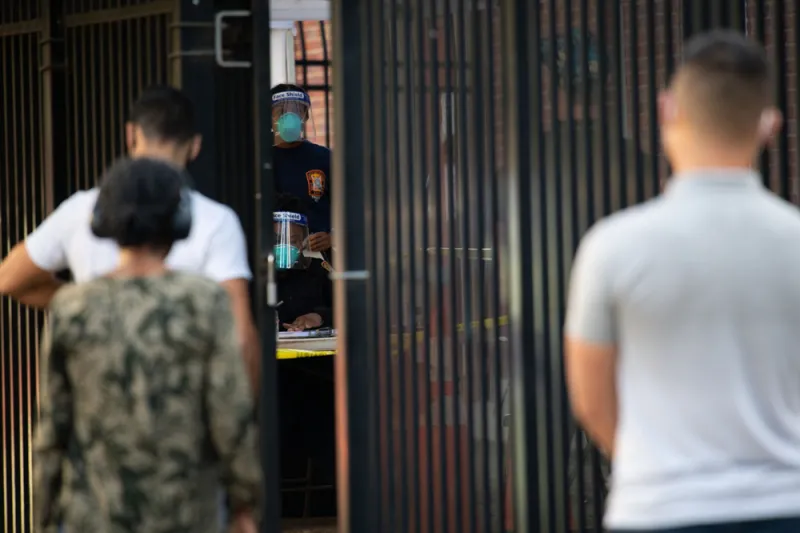A large portion of private equity portfolios seemed asymptomatic following the sharp economic down induced by Covid-19, according to researchers from Harvard University, the University of Chicago, and Georgetown University.
After the novel coronavirus “dramatically” shocked the economy, the researchers asked private equity managers to divide companies they own into green, yellow and red “lights” to indicate how hard the pandemic hit their holdings, according to their working paper this month. Surveyed firms responded on average that slightly more than half of their portfolios were in the “green light,” meaning they were “without symptoms,” either unscathed or positively affected by Covid.
Harvard’s Paul Gompers, the University of Chicago’s Steven Kaplan, and Georgetown’s Vladimir Mukharlyamov conducted the survey in July and early August, probing more than 200 private equity firms with $1.9 trillion of assets under management. They found an average 10 percent of companies in their portfolios were in the “red light,” signaling the pandemic had sent them into “intensive care.”
That’s a relatively small percentage viewed as “severely affected” soon after the economy was devastated by the novel coronavirus. Gross domestic product in the U.S. plunged 31.4 percent in the second quarter as government officials issued stay-at-home orders to stop the virus’s spread, according to an estimate from the Bureau of Economic Analysis at the end of September.
That marks the biggest quarterly drop in U.S. GDP on record, BEA data going as far back as 1947 show. Still, private equity managers surveyed soon after the second quarter signaled to the researchers that 40 percent of their portfolios were in the “yellow light,” meaning they were moderately affected — “sick, but ok.”
“Private equity managers — both investing and operating partners — are actively engaged in the operations, governance, and financing in all of their current portfolio companies,” Gompers, Kaplan, and Mukharlyamov said in their paper. “These activities are more intensively pursued in those companies that have been more severely affected by the Covid-19 pandemic.”
Reducing costs such as headcount and helping companies shore up cash by drawing on their credit lines are part of those efforts, according to the paper. Another common activity among private equity mangers was assisting companies they own to access the government’s Paycheck Protection Program for aid, according to the researchers.
[II Deep Dive: The Mystery of the Profitable Energy Marks]
With about half of their portfolios hurt to some extent in the pandemic, private equity firms expect the performance of their existing funds to decline, according to the paper. The researchers found private equity mangers anticipate gross internal rates of return will drop by 4.4 percent.
Still, they believe that new investments made from their main funds in the Covid-19 environment will lead to big returns. They’re targeting average IRRs of 22.6 percent, the paper shows.







